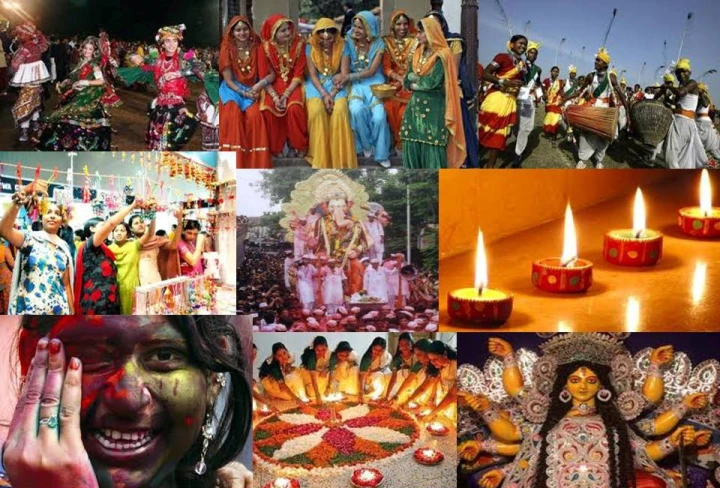Festivals are more than just celebrations; they are windows into the soul of a community, revealing the traditions, values, and stories passed down through generations. Across the world, festivals rooted in heritage and culture offer a glimpse into the diverse ways people honor their history, identity, and beliefs. These events are vibrant tapestries of rituals, music, dance, and cuisine, weaving together the past and present in ways that resonate with both locals and visitors alike. Let us embark on a journey through time and explore some of the most profound festivals that celebrate heritage and culture.
India’s Rich Tapestry of Cultural Festivals
In India, where every region is a melting pot of traditions, festivals such as Diwali, Holi, and Durga Puja go beyond religious observances. They are embedded in the cultural consciousness of the nation, drawing on centuries of mythological, historical, and social narratives. Take Diwali, the Festival of Lights, for instance. Rooted in the ancient Hindu epic Ramayana, it symbolizes the victory of light over darkness, knowledge over ignorance, and good over evil. Celebrated with great fervor, this festival lights up homes and hearts, uniting communities across India. While fireworks, sweets, and rituals form the external fabric of Diwali, its deeper essence lies in the reaffirmation of values such as hope, unity, and renewal.
Similarly, Holi, known as the Festival of Colors, dates back to pre-Vedic times and celebrates the arrival of spring, the triumph of good over evil, and the playful spirit of Lord Krishna. What makes Holi so unique is its emphasis on joy and equality, where people of all backgrounds come together to douse each other in colors, forgetting social distinctions and personal differences, even if just for a day.
Global Festivals Rooted in Tradition
Beyond India’s borders, festivals such as Japan’s Gion Matsuri, Mexico’s Día de los Muertos (Day of the Dead), and Spain’s La Tomatina also highlight how culture and heritage intertwine. Gion Matsuri, which has been celebrated for over a millennium in the city of Kyoto, pays homage to the city’s resilience and purification rituals. The festival’s intricate floats and processions are steeped in symbolism, representing the people’s connection to their deities and their desire for prosperity.
Mexico’s Día de los Muertos is a festival that turns our perception of death on its head. Instead of mourning, it is a joyous celebration of life and death, honoring ancestors and deceased loved ones. Families create elaborate altars, known as ofrendas, adorned with photos, marigolds, sugar skulls, and the favorite foods of the departed. Through this festival, the Mexican people express their belief in the cyclical nature of life and the enduring presence of those who have passed on, keeping their memories alive through stories and rituals.
In Spain, La Tomatina transforms the town of Buñol into a vibrant, tomato-filled battleground. Though not traditionally spiritual, this festival has its roots in a post-war cultural celebration and has evolved into a symbol of camaraderie and light-hearted chaos, demonstrating how festivals can adapt over time while still preserving cultural significance.
Bridging the Past and Present
What these festivals share, despite their geographical and cultural differences, is their ability to bridge time, connecting the present with the past. They are living embodiments of heritage, keeping ancient customs alive and relevant in the modern world. Whether through dance, food, or communal rituals, they allow people to reconnect with their roots, reinforcing a sense of identity and continuity.
Moreover, in an increasingly globalized world, festivals have become powerful tools for cultural exchange. They invite outsiders to experience and appreciate the uniqueness of different cultures, fostering a greater understanding and appreciation of the world’s diverse heritage. This is particularly evident in the growing trend of cultural tourism, where travelers seek authentic experiences that allow them to participate in these time-honored traditions. Festivals are not just preserved for the local populace but have become global celebrations, shared by people from all walks of life who wish to immerse themselves in the cultural richness of a region.
The Ever-Evolving Nature of Cultural Festivals
In essence, festivals that celebrate heritage and culture are vital threads in the fabric of human civilization. They preserve the legacy of those who came before, while adapting to the times, ensuring that future generations can continue to draw inspiration and wisdom from the past. They remind us that culture is not static, but a dynamic and evolving force, capable of bridging time and bringing people together across boundaries. Through these festivals, we all embark on a journey through time, celebrating the diverse heritage that makes our world so richly beautiful and deeply interconnected.
Authored by Jatinder Paul Singh, CEO and Co founder, Viacation



